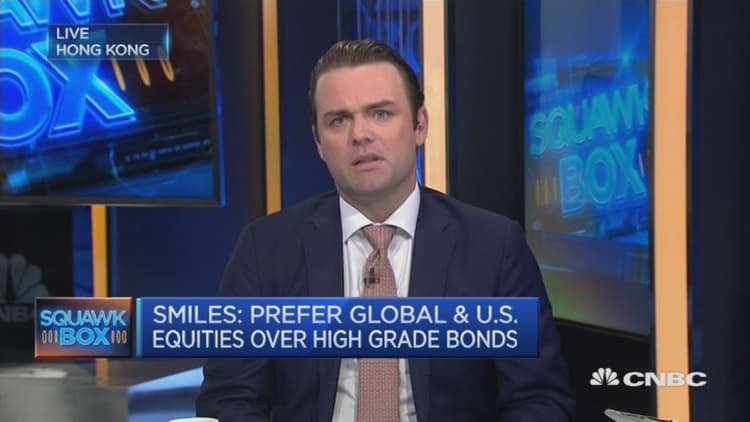The super wealthy want more out of their investments these days.
In addition to financial returns, they want their money to drive positive changes in the world, but the options for achieving both concurrently is lacking, according to a UBS expert.
The Swiss bank, the largest wealth manager globally, was referring to a money-making discipline known as sustainable investing. That's an umbrella term for investing in financial instruments that generate returns from doing good — or simply supporting something that's not doing bad.
But many of the available investment products marketed as being socially responsible or sustainable simply leave out financially risky companies or firms deemed to be in the business of "vices" — a method that doesn't resonate with all investors, said Simon Smiles, chief investment officer for ultra-high net worth at UBS Wealth Management.
"It may turn out that you don't want to invest in tobacco, firearms and alcohol, and so you don't do that. But to assume that everyone has that same value is inherently problematic," Smiles told CNBC in March.
"Some people like drinking alcohol, some people like smoking, some people like guns, so to tell investors they shouldn't be doing it because it's wrong, you're straightaway not aligning with their values. (But) that's the way a vast majority of sustainable investing products have been positioned," he explained.
Instead of avoiding "bad" companies and investing only in firms with good credit ratings, super wealthy individuals want their portfolios to reflect what they believe in, said Smiles.
That means building a whole portfolio with investments that best represent their views on the world, he added. For example, investors who want a part in driving global development could choose bonds issued by institutions such as the World Bank and the Asian Development Bank, and those passionate about green efforts could invest in debt instruments that use proceeds to finance activities benefiting the environment.

"A vast proportion of opportunities across the industry focus on specific equities, specific funds, specific ETFs rather than thinking of it in a portfolio context," the CIO said, explaining that clients aren't interested in strategies that exclude kinds of products from a portfolio or pick out single equities in a "piecemeal" fashion.
"Instead, the conversation's more about: How do you ingrain sustainability in a coherent way across the entire portfolio?" he added.
The wealthy are still holding lots of cash
The mismatch between what's available in the market and what super-rich individuals want is one reason why sustainable investment makes up a "still small" proportion in their portfolios, said Smiles.
That's despite the overall growth seen in sustainable investment. The latest biennial report by the Global Sustainable Investment Alliance published last year found that globally, the strategy grew 25 percent between 2014 and 2016 to $22.89 trillion. That's around 26.3 percent of total assets under management.
At the same time, the super-wealthy are still holding onto large amounts of cash — a situation that hasn't changed much since the last global financial crisis, the CIO noted. A UBS survey last year found ultra-high net worth investors — those with at least $30 million in investible assets — allocate as much as 35 percent of their portfolios to cash.
He added that UBS has been advising clients to invest some of that cash, especially now that the environment is still favorable for "risk assets" such as stocks.
"But clients still, on average, hold more cash than what we'd recommend from an investment perspective," Smiles said. "The memory of (global financial crisis) is still fresh enough for people to value significant cash balances more."


